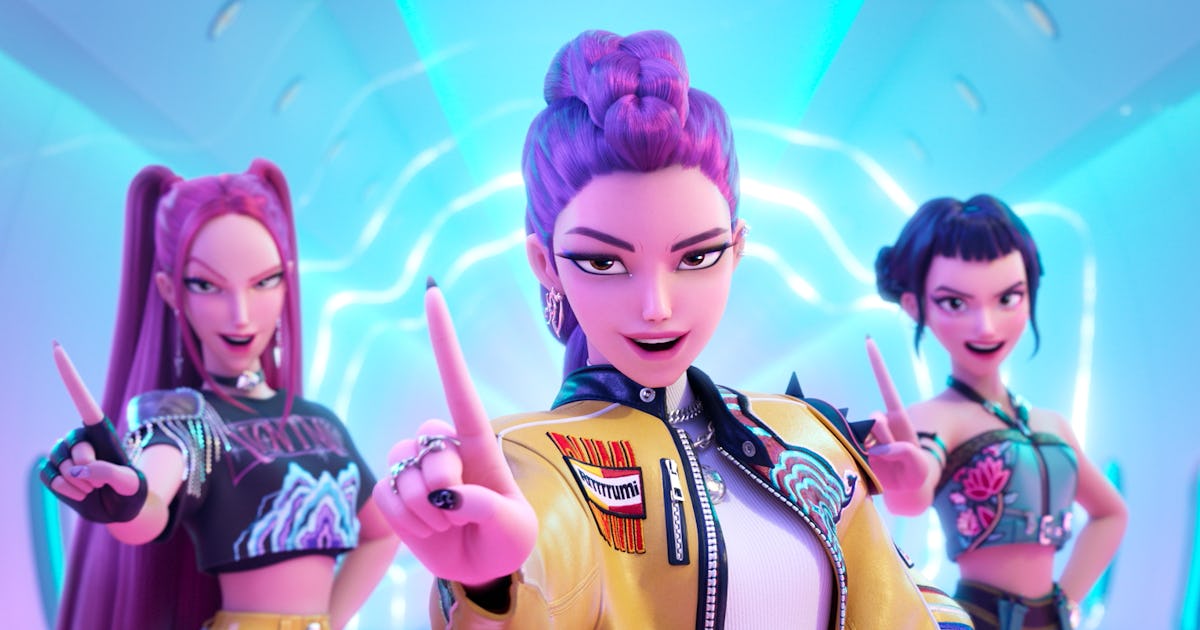From the outside looking in, the K-pop industrial complex is like a cult unto itself. Stans the world over pledge their allegiance to supernaturally gorgeous singers and dancers, while labels churn out a steady stream of polished content — from comebacks to music videos to photo cards and fan meets — to keep the parasocial love going.
As someone who’s dabbled (heavily) in the world of K-pop, I can’t deny those allegations. Getting swept up in the novelty of a new group is a rush too electric for words. Something strangely primal takes over when my favorite artists return with a new single, a new music video; when I buy a new album and pull a photocard of my favorite member (or bias) from the folds of a CD jacket. But I also know, in the back of my mind, that this brand of idolatry is dangerous even in moderation. I’ve scoured the bowels of eBay like a soul possessed to procure rare BTS merch, fallen into “post-concert depression” after seeing a group live, and spread the good word of K-pop to anyone who’ll listen. The genre definitely has the power to unite and uplift, but there’s also a darker edge to it all, one a concerned bystander could easily mistake for emotional and financial bondage.
Directors Maggie Kang and Chris Appelhans know this push-and-pull all too well — and their debut, KPop Demon Hunters, is more or less in on the joke. The film, produced by Sony Animation, bottles the essence of the K-pop industry and adds a hilarious supernatural twist for good measure. The eponymous singers the film revolves around are the highest-grossing girl group in the world, but they also happen to moonlight as demon slayers.
Lead singer Rumi (Arden Cho), dancer Mira (May Hong), and rapper Zoey (Ji-young Yoo) have spent their entire lives training to defeat the demon king Gwi-Ma (Squid Game star Lee Byung-hun). This trio, known as Huntrix, is the latest in a long line of demon-fighting girl groups, the origins of which link back to Korea’s Joseon era. KPop Demon Hunters pays homage to generations of female singers in Korea with stunning, dynamic animation, tracing Huntrix’s origins from golden age crooners to the pioneers of K-pop as we know it today. This cabal has kept Gwi-ma and his demon horde at bay for centuries, but Huntrix is closer than ever to sealing the rift between the demon world and our earthly plane.
On the cusp of ultimate defeat, Gwi-ma pulls a wild card from his ranks: a demon boy band led by the charming, conflicted Jinu (Ahn Hyo-seop). The Saja Boys become a viral sensation in just a day, launching KPop Demon Hunters into the kind of boy-versus-girl rivalry that riffs on everything from Powerpuff Girls and Buffy the Vampire Slayer. Jinu’s presence in particular awakens a hidden shame within Rumi, evoking the forbidden romances that have fueled countless fandoms in genre. (Reylo and Oshamir lovers, come to the front.)
We stan the demon boy band.
Netflix
Not for nothing, Rumi also inspires a moral conflict within Jinu, prompting each star-crossed lover to re-examine their allegiances. Only Rumi’s voice is capable of banishing demonkind and reinforcing the barrier between worlds — but when she works herself too hard and injures her voice (an unbelievably common occurrence for real-life K-pop artists), Huntrix loses their most powerful weapon. As the Saja Boys corrupt more souls and Gwi-ma grows stronger, sending more demons into the world, the group finds itself fracturing for the first time. Through their plight, KPop Demon Hunters tackles the dark side of the K-pop industry alongside its virtues. Like the genre, it’s more than just black-and-white. Fandom is more than obsession: it’s also community and safety. Performance has its pitfalls as well, but it also has the power to uplift.
Kang and Appelhans create a nuanced portrait of the industry through a supernatural lens, bolstering its story with laugh-out-loud humor, gorgeously rendered animation, and heartfelt emotional dynamics. KPop Demon Hunters is a worthy successor to Sony Animation’s innovative new legacy: it takes the perfect cues from the Spider-Verse franchise and Netflix’s Nimona or Arcane, and in a perfect world, it’ll go on to inform the next wave of animation.
KPop Demon Hunters is now streaming on Netflix.
Source link
Movies,Netflix,Fantasy,inverse-movie-reviews,movies,netflix,streaming,music,fantasy,entertainment,inverse-recommends-movies,homepage,hp-latest,adex-light-bid




Average Rating